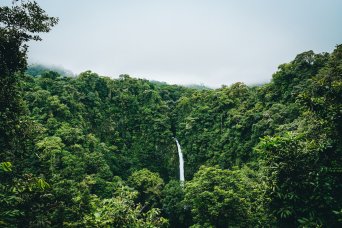- About
- Topics
- Story
- In-Depth
- Picks
- Opinion
- News
- Donate
- Signup for our newsletterOur Editors' Best Picks.Send
Read, Debate: Engage.
| topic: | Climate action |
|---|---|
| located: | Brazil, USA |
| editor: | Ellen Nemitz |
In the first official meeting on 10 February between US President Biden and Brazil's recently-elected President Lula da Silva, environmental agendas were at the core of the two countries’ discussions, as well as democracy and human rights. Lula reaffirmed his commitment to drastically reduce deforestation, bringing it to zero by 2030, thereby transforming the world’s largest tropical forest into a source of life and health for humanity. In the meeting, the Brazilian president called for a "strong global governance" to tackle the climate crisis.
Biden and Lula now have the historical chance of revolutionising environmental policy for the Americas. According to the White House press office, the two leaders agreed to reconvene the United States-Brazil Climate Change Working Group and strengthen the protection of forests from degradation, as well as bolstering investment in sustainable economies, green-energy transitions, low carbon agriculture and climate resilience strategies. The US has also considered a financial contribution to the Amazon Fund, which helps prevent further deforestation.
As FairPlanet already reported, a complete rearrangement of the Brazilian environmental framework kicked off as early as 1 January, when the Minister Marina Silva announced a series of measures to restructure the governmental bodies of this bureau. With a short caption "Ibama is back", for instance, the Ministry of the Environment and Climate Change summarises the new proactive phase of this important agency - Ibama, the Brazilian Institute of Environment and Renewable Natural Resources, is responsible for the surveillance of natural areas.
The huge task force to expel illegal miners from the Yanomamis' territory, which has taken all the attention since late January, is just one part of the environmental plans. Silva has been actively coordinating international partnerships and announcing collective strategies to combat deforestation and forest fires through sustainable exploitation of public forests, surveillance and other instruments to promote forest protection and restoration. A similar program was implemented in early 2000s, when she occupied the same position, but it is now improved and will focus on all Brazilian biomes, not just the Amazon Forest.
In January, according to the National Institute for Space Research data, gathered by the independent outlet ((o))eco, the number of hot spots indicating forest fires in the Amazon dropped by 33 percent compared to the average recorded in the same month in 2022. Meanwhile, deforestation alerts dropped by 61 percent - the fourth lowest in recorded history - although specialists warn that it is too early to indicate a trend.
"We have at least two years - and hopefully many more - with Brazilian and American leaders who understand democracy and are ready to show that our countries share something better than conspiracy-theory-fueled mobs," stated the economist John Reid and the scientist Paulo Moutinho to Mongabay, referring to the similar attacks on the US Capitol and Brasilia. "We share a purpose to steward our planet into the future and the potential to exemplify North-South collaboration to save the planet’s great forests."
Image by Fabio Fistarol

